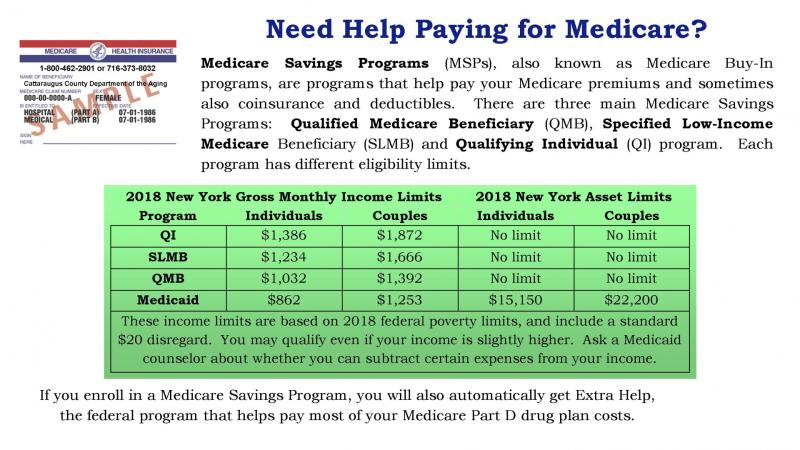What is MSP for Medicare?
Medicare Secondary Payer (MSP) is a term used in the context of health insurance to identify situations where Medicare is not the primary payer for medical expenses. Instead, another entity or insurance plan is responsible for paying a beneficiary's healthcare costs first, and Medicare serves as a secondary payer.
Here are key points regarding the Medicare Secondary Payer (MSP) program:
Primary Payer Status:
- Medicare is designed to be the primary payer for healthcare services for individuals aged 65 and older, as well as certain individuals under 65 with disabilities. However, in specific situations, other insurance plans or sources are considered the primary payer.
Primary Payer Examples:
- Other insurance plans that may be considered primary include employer-sponsored group health plans, workers' compensation, liability insurance (including auto insurance), and no-fault insurance. In situations where an individual has coverage through one of these plans, that plan is expected to pay for the medical services first.
Coordination of Benefits (COB):
- The coordination of benefits is the process by which Medicare determines its payment responsibilities when there is more than one insurance plan involved. COB rules establish the order in which different plans pay claims to avoid overpayment and ensure that each plan pays its fair share.
Reporting Responsibilities:
- Insurance providers, employers, and other entities that provide primary coverage are required to report information to Medicare about their beneficiaries' coverage. This reporting helps Medicare determine when it should act as the primary or secondary payer.
Impact on Reimbursement:
- When Medicare is the secondary payer, it may pay for costs not covered by the primary payer, such as deductibles, coinsurance, and copayments. However, the coordination of benefits rules may limit the amount that Medicare pays.
Mandatory Reporting Requirements:
- Entities providing primary coverage are required to report specific information to Medicare through a process known as Mandatory Insurer Reporting (MIR). This reporting ensures that Medicare has accurate information about the coverage beneficiaries have through other plans.
Penalties for Non-Compliance:
- Failure to comply with MSP reporting requirements can result in penalties for insurance providers and other responsible entities.
Legal Framework:
- The MSP provisions are established by federal law, and compliance is overseen by the Centers for Medicare & Medicaid Services (CMS).
Understanding and complying with MSP rules are essential for healthcare providers, insurance companies, employers, and individuals covered by Medicare. It helps ensure that Medicare resources are used appropriately and that the program is able to fulfill its role as a secondary payer when required.
What role does MSP (Medicare Secondary Payer) play within the framework of Medicare?
The Medicare Secondary Payer (MSP) program plays a vital role within the framework of Medicare by ensuring that Medicare does not pay for healthcare services when another entity has primary payment responsibility. This helps to:
1. Protect the Medicare Trust Funds: By ensuring that Medicare is not the primary payer for services covered by other insurance, the MSP program helps to conserve valuable resources and ensure the long-term sustainability of the Medicare program.
2. Reduce Duplicate Payments: By coordinating with other payers, the MSP program prevents Medicare from making duplicate payments for the same healthcare services, which can save taxpayers money.
3. Promote Efficiency and Fairness: The MSP program helps to ensure that everyone pays their fair share for healthcare costs by ensuring that all available sources of payment are used before Medicare is billed.
4. Protect Beneficiaries: By ensuring that beneficiaries have access to all of their available health insurance coverage, the MSP program helps to protect them from financial hardship and ensures that they receive necessary medical care.
Here's a breakdown of the key functions of MSP:
- Identifying situations where Medicare is secondary: The MSP program identifies situations where another entity, such as an employer-sponsored health plan or a government program like Workers' Compensation, is responsible for paying for healthcare services before Medicare.
- Coordinating with other payers: MSP works with other payers to determine which entity is responsible for paying for healthcare services.
- Recovering Medicare payments: If Medicare has mistakenly paid for services that should have been paid by another entity, MSP recovers those payments from the other payer.
- Educating providers and beneficiaries: MSP provides education and outreach to healthcare providers and beneficiaries about the MSP program and their responsibilities under the program.
The MSP program is complex and there are many different rules and regulations that apply. However, the overall goal of the program is to ensure that Medicare is used efficiently and effectively and that beneficiaries have access to the healthcare services they need.
Here are some additional resources that you may find helpful:
- Medicare website: https://www.cms.gov/medicare/coordination-benefits-recovery/overview/secondary-payer
- Medicare Secondary Payer Manual: https://www.cms.gov/regulations-and-guidance/guidance/manuals/downloads/msp105c03.pdf
- National Coordination of Benefits Center: https://www.cms.gov/medicare/coordination-benefits-recovery/overview/coordination-benefits












